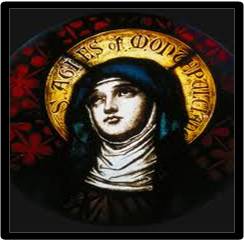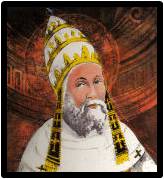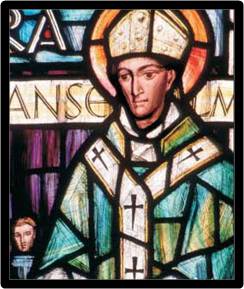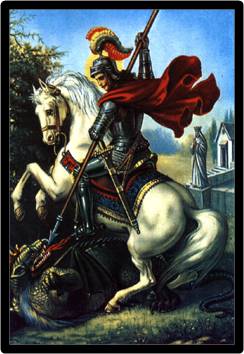APRIL 20 - ST. AGNES OF MONTEPULCIANO

This saint was born at Gracchiano-Vecchio, Tuscany in Italy to wealthy parents. When she was only six she began pleading with her parents to let her live at the nearby convent. Finally, when she was nine years old, she was allowed to join the convent at Montepulciano.
Agnes was very happy with the sisters. They lived in quiet prayer and worked hard. Even though she was young, Agnes understood why the sisters lived and prayed so well. They wanted to be very close to Jesus.
As the years passed, St. Agnes received her training as a novice. She was such a good nun that the other sisters were pleased to have her. Agnes prayed with all her heart. She set a very good example of holiness and some young women came to join them. Agnes and the sisters belonged to the Order of Preachers, called Dominicans.
When she was about forty years old, Agnes was made superior or “prioress” of the convent. She tried to be fair and honest with each sister. She kept reminding herself that everything she did was for Jesus. She believed that Jesus was really in charge of the convent. He was taking care of them.
Mother Agnes performed hard penances by sleeping on the ground with a stone for a pillow and living on just bread and water. She was kind and gentle even when she didn’t feel like it. God filled Agnes with joy and gifted her with many spiritual favors. He even let her hold the Christ Child in her arms.
Agnes was sick a lot of the time, but she was patient even when she was very ill. She never complained or felt sorry for herself. Instead, she offered everything to God. The sisters were very sad when she was dying. “If you loved me, you would be glad,” Agnes said. “I am going to enter the glory of Jesus.”
St. Agnes died in 1317 at the age of forty-nine. Her tomb became a place of pilgrimage where people came to pray to this holy woman and to seek her help. Among the pilgrims was the famous St. Catherine of Siena. St. Agnes’ body is incorrupt to this day.



